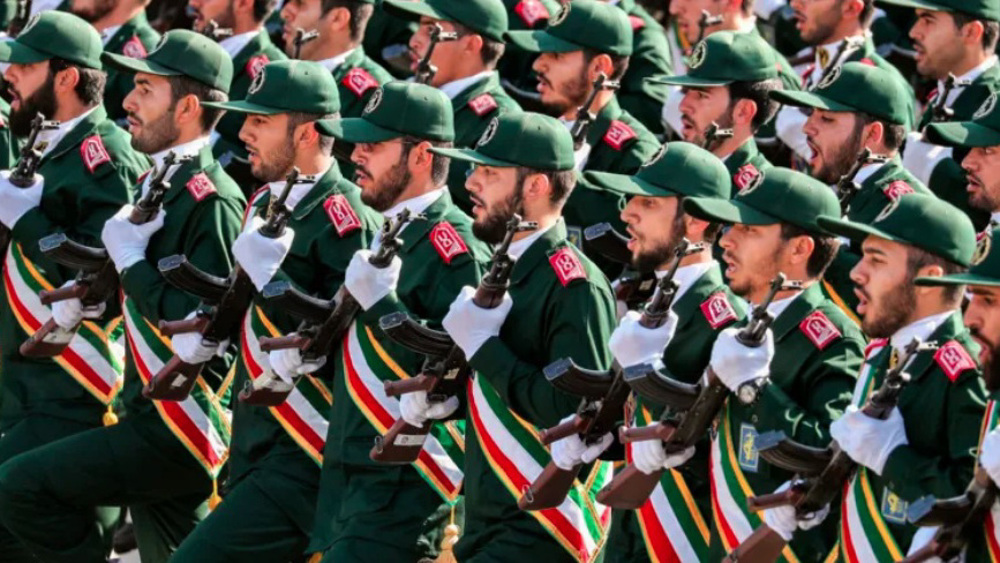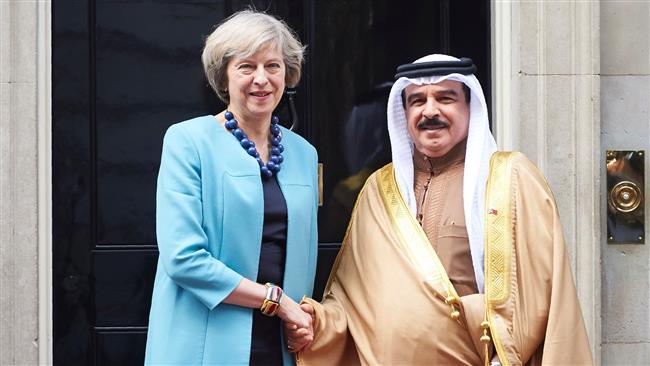US, UK support encourages Bahrain to suppress dissent: Pundit
Bahrain’s recent execution of three anti-regime activists has caused widespread rage throughout the nation and drawn international condemnation. Press TV has talked to two commentators to discuss the reasons why the Al Khalifah dynasty carries out such harsh measures which could instigate violence in the tiny Persian Gulf state.
Michael Springmann, a former US diplomat in Saudi Arabia from Washington, maintained that the Manama regime does not want to change its repressive policy against the democracy-seeking opposition, because of its reliance on full support from Western powers and their regional allies.
“With Bahrain being backed by the British and the American governments, this may be a small hiccup. It is a long road of repression,” Springmann told Press TV’s “The Debate” program on Sunday night.
“The United States with its Fifth Fleet headquartered in Manama knows that their presence would be threatened if the people of Bahrain want a free and democratic government,” he said.
Washington, Springmann said, attaches itself to this repressive and repulsive government, because it knows that it can gain control of the region much more easily with help from such suppressive governments compared to democratically-elected constitutional governments.
The United Kingdom, which controlled most of the Persian Gulf region until the 1970s, has changed its colonial tactics now, he said, adding that Britain is currently supporting these sheikhdoms to suppress all voices seeking a real government.
According to Springmann, in a bid to blame foreign states for the domestic unrest in Bahrain, Western governments and media have echoed allegations that Iran is supporting the Bahraini opposition to pave the way for its future role in the tiny country.
He mentioned that Britain and its puppet government in Bahrain resort to baseless allegations against Iran, whereas, in actuality, a popular uprising for freedom and democracy is happening in the Arab nation.
“Iran did not invade Bahrain when people were demonstrating [for] more freedom and democracy, [but] it was the Saudis who did this,” he said.
The analyst further touched on the history of repression and crackdown on freedom-lovers in Bahrain, saying that during the 1990s, Bahraini people demonstrated for a constitutional monarchy, but the current monarch who promised to establish a parliamentary government back then, reneged on his pledges and suppressed opponents after he became king in 2002.
As the demonstrations began in 2011, the Al Khalifah dynasty brought in Sunni forces to suffocate any opposition, while the unrest in Bahrain has nothing to do with the Shia-Sunni differences, because people from all walks of life and with different religious affiliations have been showing their resentment of the widespread inequality and lack of freedom in the country, he argued.
Pointing to the Al Khalifah regime’s tactics to repress the Shia population, he noted that the Manama government brings in foreign forces to “dilute the Shia majority.”
Since 2011, Bahraini people have been holding non-violent protests to demand reforms and a democratic state, but the government has been giving a heavy-handed security response to peaceful popular protests.
The analyst said there would not be any change in Bahrain “unless the government is overthrown and the people manage to gain control, in spite of a government monopoly on weapons.”
He predicted that the status quo wound not change and that the government would become far more repressive “if it sees its hold on power threatened in any reasonable way.”
Meanwhile, Lee Kaplan, an investigative journalist from San Francisco, said that since the US President-elect Donald Trump is going to take office in the coming days and the Bahraini government feels more secure from the American side, it has used the opportunity to adopt more harsh tactics against the opposition.
However, Kaplan claimed that the three Bahrainis, who were executed, were “terrorists” because “they killed three police officers.”
Referring to the root causes of the popular uprising in Bahrain, he said that “there is obviously a conflict between Shia Muslims and Sunni Muslims.”
The analyst acknowledged that the Manama government is a “dictatorial regime” but that Western powers “have to pick and choose their allies” in order “to have control” on international affairs.
The United States has a military presence in Bahrain “to check Iran’s expansion in the region,” Kaplan said, accusing the Islamic Republic of trying to “take over Bahrain” through supporting the Bahraini Shia population against the regime.
Since the beginning of the popular uprising in Bahrain, Iranian authorities have rejected all allegations of playing a role in the conflict, saying that they are in favor of reconciliation between the Manama government and the opposition.
Iran’s layered arsenal primed to deter – and decimate – US warships in Persian Gulf
Iranian commander dismisses US military buildup in West Asia as ‘theatrical gesture’
Trump ‘curious’ why Iran hasn’t ‘capitulated’ despite massive US military buildup: Witkoff
Hawkish US senator pushes Trump to ignore aides, press ahead with war against Iran
Far-right, anti-Islam protest sparks counter-protests in Manchester
Press TV's news headlines
Sudan’s mining sector suffers $7 billion loss amid ongoing civil war
Ansarullah slams Israel’s massacre in east Lebanon, urges unified Arab action













 This makes it easy to access the Press TV website
This makes it easy to access the Press TV website